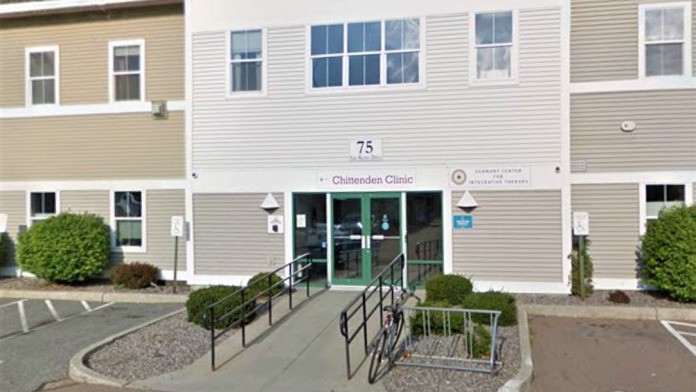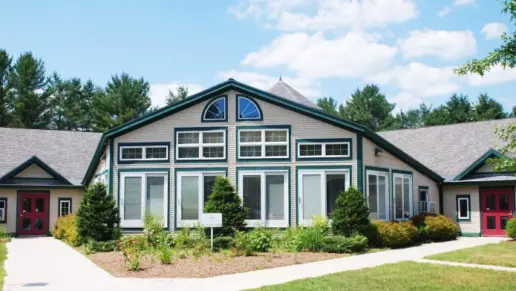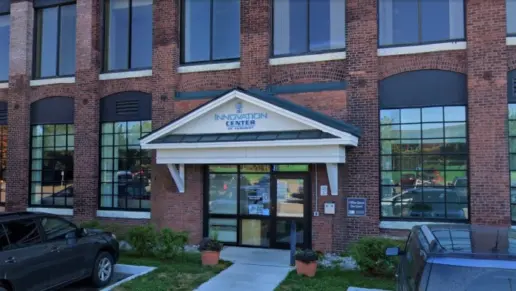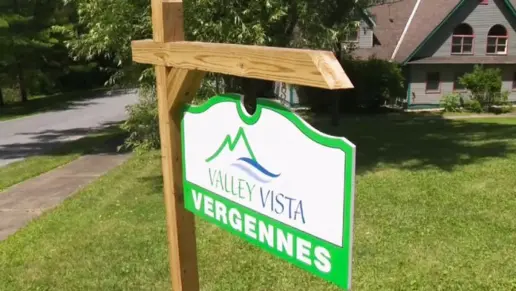About Howard Center Chittenden Clinic
Howard Center – Addiction Medicine is an outpatient opioid addiction recovery facility. This program is typically called Hub in Vermont’s Hub and Spoke model for opioid addiction. They’re located in South Burlington, Vermont and operate seven days a week.
They offer medication assisted treatment to people over 18 with opioid use disorders. This technique uses FDA approved medicines like methadone and buprenorphine to manage withdrawal. This prepares you to participate in counseling, which is beneficial in addressing underlying causes of addiction and building coping skills. That way both the physical and psychological aspects of the addiction are addressed, and you’ll achieve lasting recovery.
The facility is accredited by CARF. This means they satisfy the highest standard for quality care. They offer extensive medical, therapeutic and care management services. This is geared toward the treatment of opioid or other substance use disorders, mental health issues and various psychological support.
Emphasis is placed on holistic, recovery-oriented and harm reduction treatment approaches. Their complete services include intake assessment, treatment planning and stabilization. 24/7 monitoring is provided by care personnel. This includes regular urine collection and testing to ensure compliance while tracking progress. Upon stabilization, you’ll be eligible for take home medication.
Your on-site case manager will connect you to community resources to assess various services.
This may include housing support, employment assistance and transportation services. Other services include daycare, insurance and 12 Step programs. They may offer referrals to other community providers in certain situations. For example, if you’re dealing with acute mental health and co-occurring conditions. Comments from past clients indicate an overall positive experience with the facility.
Rehab Score
Gallery

Location
Other Forms of Payment
Private insurance refers to any kind of healthcare coverage that isn't from the state or federal government. This includes individual and family plans offered by an employer or purchased from the Insurance Marketplace. Every plan will have different requirements and out of pocket costs so be sure to get the full details before you start treatment.
Self-pay involves paying for treatment out of your own pocket. You can use savings or credit, get a personal loan, or receive help from family and friends to fund your treatment. If you don't have insurance or your insurance plan doesn't cover a specific program, self-pay can help ensure you still get the care you need.
Sliding scale payments are based on a client's income and family size. The goal is to make treatment affordable to everyone. By taking these factors into account, addiction recovery care providers help ensure that your treatment does not become a financial burden to you or your family, eliminating one barrier to care.
Medicare is a federal program that provides health insurance for those 65 and older. It also serves people under 65 with chronic and disabling health challenges. To use Medicare for addiction treatment you need to find a program that accepts Medicare and is in network with your plan. Out of pocket costs and preauthorization requirements vary, so always check with your provider.
Military members, veterans, and eligible dependents have access to specific insurance programs that help them get the care they need. TRICARE and VA insurance can help you access low cost or no cost addiction and mental health treatment. Programs that accept military insurance often have targeted treatment focused on the unique challenges military members, veterans, and their families face.
Medicaid is a state based program that helps lower-income individuals and families pay for healthcare. Medicaid covers addiction treatment so those enrolled can use their coverage to pay for rehab. When a program accepts Medicaid the client often pays very little or nothing out of their own pocket.
Addiction Treatments
Levels of Care
Treatments
The goal of treatment for alcoholism is abstinence. Those with poor social support, poor motivation, or psychiatric disorders tend to relapse within a few years of treatment. For these people, success is measured by longer periods of abstinence, reduced use of alcohol, better health, and improved social functioning. Recovery and Maintenance are usually based on 12 step programs and AA meetings.
A person with substance dependence can achieve recovery through drug rehab in Vermont. Professional staff provide a combination of interventions that are designed to help you attain and maintain abstinence from drugs.
Opioid rehabs specialize in supporting those recovering from opioid addiction. They treat those suffering from addiction to illegal opioids like heroin, as well as prescription drugs like oxycodone. These centers typically combine both physical as well as mental and emotional support to help stop addiction. Physical support often includes medical detox and subsequent medical support (including medication), and mental support includes in-depth therapy to address the underlying causes of addiction.
Substance rehabs focus on helping individuals recover from substance abuse, including alcohol and drug addiction (both illegal and prescription drugs). They often include the opportunity to engage in both individual as well as group therapy.
Programs



Clinical Services
Group therapy is any therapeutic work that happens in a group (not one-on-one). There are a number of different group therapy modalities, including support groups, experiential therapy, psycho-education, and more. Group therapy involves treatment as well as processing interaction between group members.
Using a personalized approach for drug addiction treatment allows your therapist to tailor interventions in your individual therapy sessions to your unique circumstances. During your one on one sessions, you explore the underlying causes of addiction and develop effective strategies to manage cravings, improve mental health, and ultimately achieve long term recovery.
Accreditations

The Substance Abuse and Mental Health Services Administration (SAMHSA) is a branch of the U.S. Department of Health and Human Services. Established in 1992 by congress, SAMHSA's mission is to reduce the impact of substance abuse and mental illness on American's communities.
SAMHSA Listed: Yes

The Commission on Accreditation of Rehabilitation Facilities (CARF) is a non-profit organization that specifically accredits rehab organizations. Founded in 1966, CARF's, mission is to help service providers like rehab facilities maintain high standards of care.
CARF Accreditation: Yes
Contact Information
75 San Remo Dr
South Burlington, VT 05403


